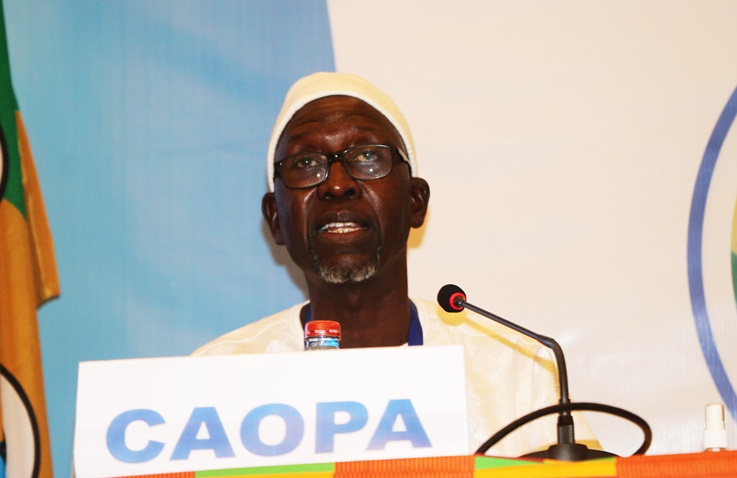We, representing the men and women working in the ACP countries artisanal fisheries sector, would first like to thank all the officials and the organising team for having listened to our concerns and taken our proposals into consideration throughout this week. We hope that this dynamic of dialogue will be perpetuated in the future, particularly during this International Year of Artisanal Fisheries and Aquaculture where there will be many international meetings concerning the future of our sector.
Artisanal fisheries in ACP countries are the largest sector of the ocean economy. Millions of men, women and young people in ACP countries live from small-scale fishing. Every day, at great cost, their work makes it possible to feed hundreds of millions of people. Even during the Covid crisis.
In this International Year, to give a dignified and sustainable future to ACP artisanal fisheries, we ask you to focus on Sustainable Development Goal 14.b, and to guarantee access to resources and markets for ACP artisanal fisheries. And we ask you to take the FAO Guidelines for Sustainable Artisanal Fisheries as your compass, to implement them through national and regional action plans, in a participatory, transparent and gender-sensitive manner.
To ensure our access to resources, it is important that we have exclusive access rights to the coastal zone. And to ensure sustainable fisheries management that benefits communities, we demand that 100% of the coastal zone be co-managed.
ACP artisanal fisheries is as much about women as men. Women are present at all stages of the artisanal fisheries value chains: they pre-finance fishing trips, receive and sort the landed fish, process it and bring it to consumers. They are also the pillars of families and communities. However, their working conditions are dire and their contribution to the sector is often invisible. For the future of ACP fisheries, it is essential that you commit more, in your strategic plan, to improving the living and working conditions of women, and to recognising them as key players in the fisheries sector, who are at the origin of many innovations that enable us to make better use of our fish resources for the benefit of our populations.
Good governance of ocean exploitation activities – anchored in stakeholder participation, transparency of decision-making processes and accountability to citizens – is the essential foundation for the reforms needed to ensure sustainable fisheries for the benefit of coastal communities in ACP countries.
If good governance is essential for fisheries, it is also true for other ocean exploitation activities, such as oil and gas exploitation, mineral extraction and coastal tourism. We make no secret of the fact that we are worried today about the marginalisation of fisheries, and small-scale fisheries in particular, within the blue economy strategies of our countries.
We, who – I repeat – represent the largest sector of the ocean economy, will not be able to survive if we have to compete with powerful, polluting sectors that destroy the marine and coastal environment. In the face of this threat, we ask you to adopt a precautionary approach: do not give the green light to a destructive blue economy!
Finally, in light of the recent report of the Intergovernmental Panel on Climate Change, which tells us once again that our earth, our common home, is on fire, I would like to say this. Artisanal fishing communities are on the frontline of the impacts of global warming. In the Pacific, in the Caribbean, in Africa, we are all facing the disasters caused by climate change. Building the resilience of coastal and artisanal fishing communities by adopting the measures we are proposing is urgent.


